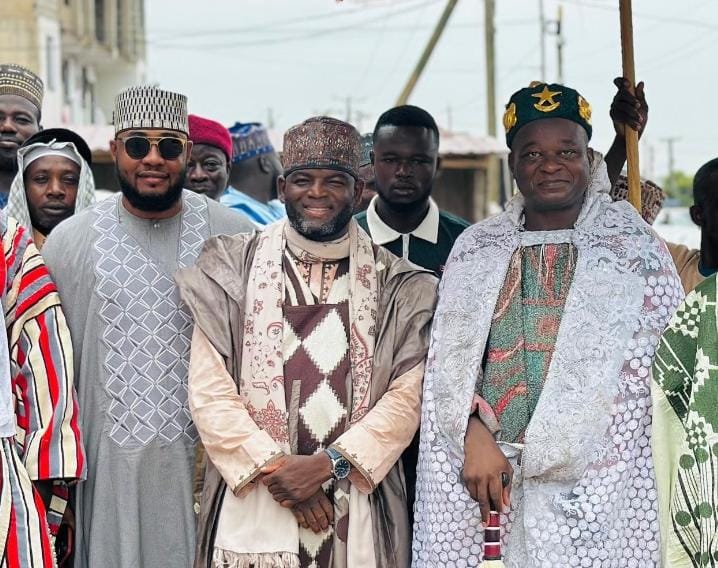Paragraph 1: A Call to Action on Eid-ul-Fitr
Sheikh Mutawakil Abubakar, the Chief Imam of the Adentan Municipality in Ghana, delivered a powerful Eid-ul-Fitr sermon, urging Muslims to actively contribute to building just, equitable, and progressive communities. He congratulated the youth for upholding the virtues of Ramadan and emphasized that Islam mandates engagement and reform, not passive observation. The Imam stressed the importance of shouldering responsibilities, drawing strength from the divine wisdom that Allah does not burden a soul beyond its capacity. He positioned leadership, governance, and social responsibility as challenges within the community’s grasp, encouraging a proactive approach towards positive change.
Paragraph 2: The Mandate of the Ummah: Active Participation and Accountability
Sheikh Abubakar emphasized the critical role of Muslims as agents of change, drawing from the Quranic verse stating that Allah does not burden a soul beyond its capacity. This principle, he argued, empowers the community to tackle the challenges of leadership, governance, and social responsibility. The Imam highlighted the importance of leveraging the peace and security granted by Allah to build a stronger society. He stressed the dual responsibility of holding leaders accountable while supporting their efforts for the common good, echoing the prophetic tradition that emphasizes the value of being beneficial to others.
Paragraph 3: Justice, Equity, and Social Responsibility as Core Principles
The Imam underscored the Quranic mandate for Muslims to enjoin good and forbid evil, positioning them as defenders of justice, advocates for fairness, and champions of the vulnerable. He argued that true development cannot occur without justice and that community building requires addressing the needs of the poor, orphans, widows, and the oppressed. Sheikh Abubakar emphasized the importance of integrity in all aspects of life, from business and governance to family and worship, as a cornerstone of a just and prosperous society.
Paragraph 4: Faith-Based Development: Moral Compass for Progress
Sheikh Abubakar challenged the conventional understanding of development as solely material progress, arguing that true development is measured by the moral and ethical strength of society. He posed critical questions about raising God-fearing children, ensuring equitable distribution of wealth, and providing opportunities for the next generation. The Imam stressed the role of faith as a moral compass guiding economic and social progress, referencing the prophetic tradition that emphasizes loving for one’s brother what one loves for oneself. This principle, he explained, connects individual success with the success of the community, urging collective upliftment, unity, and accountability.
Paragraph 5: The Path Forward: Translating Faith into Action
The Imam outlined a clear path forward for the community, emphasizing the importance of translating faith into action. He called for strengthening communities through education, skills development, and empowerment. Promoting peace and tolerance, celebrating diversity as a sign of Allah’s wisdom, and supporting ethical leadership were highlighted as crucial steps. Sheikh Abubakar stressed the significance of prioritizing justice and fairness, ensuring that no one is left behind in the pursuit of progress.
Paragraph 6: A Call to Unity and Righteousness
Concluding his sermon, Sheikh Abubakar acknowledged the magnitude of the challenges facing the Muslim community while simultaneously emphasizing their vast potential. He urged the community to rise with knowledge, wisdom, and sincerity, recognizing that deeds, not just words, build strong communities. He invoked Allah’s blessings for their efforts, prayed for strengthened unity, and guidance on the path of righteousness, concluding with the traditional Eid greeting: Eid Mubarak!


